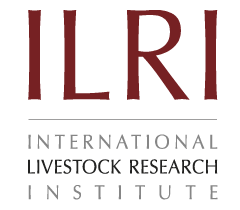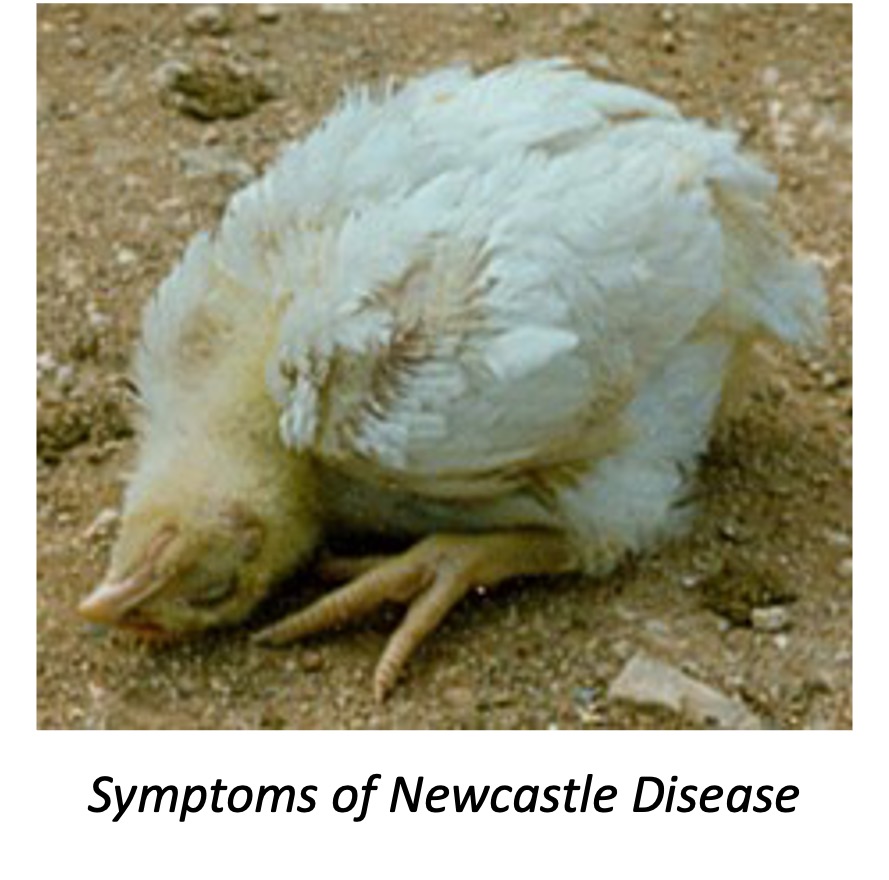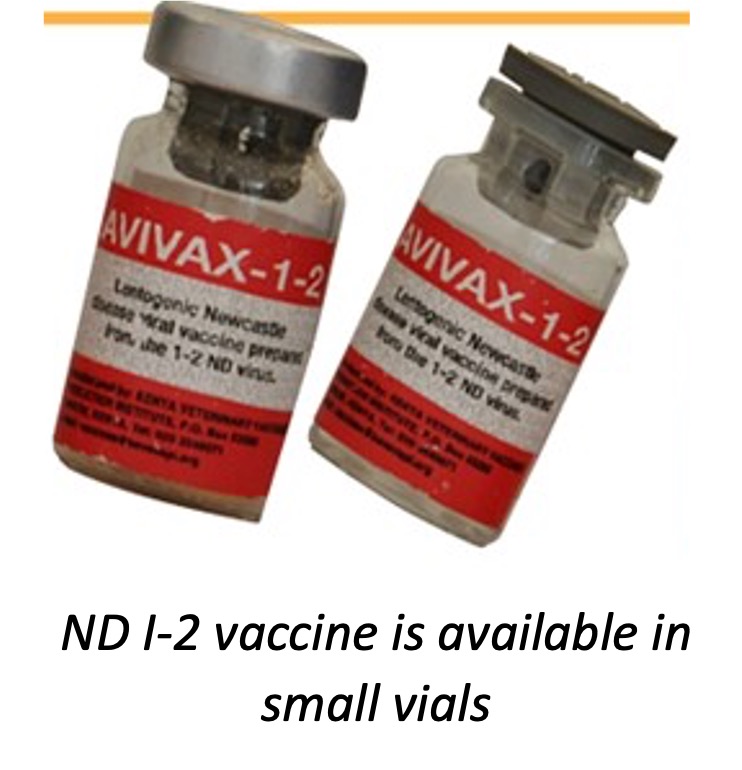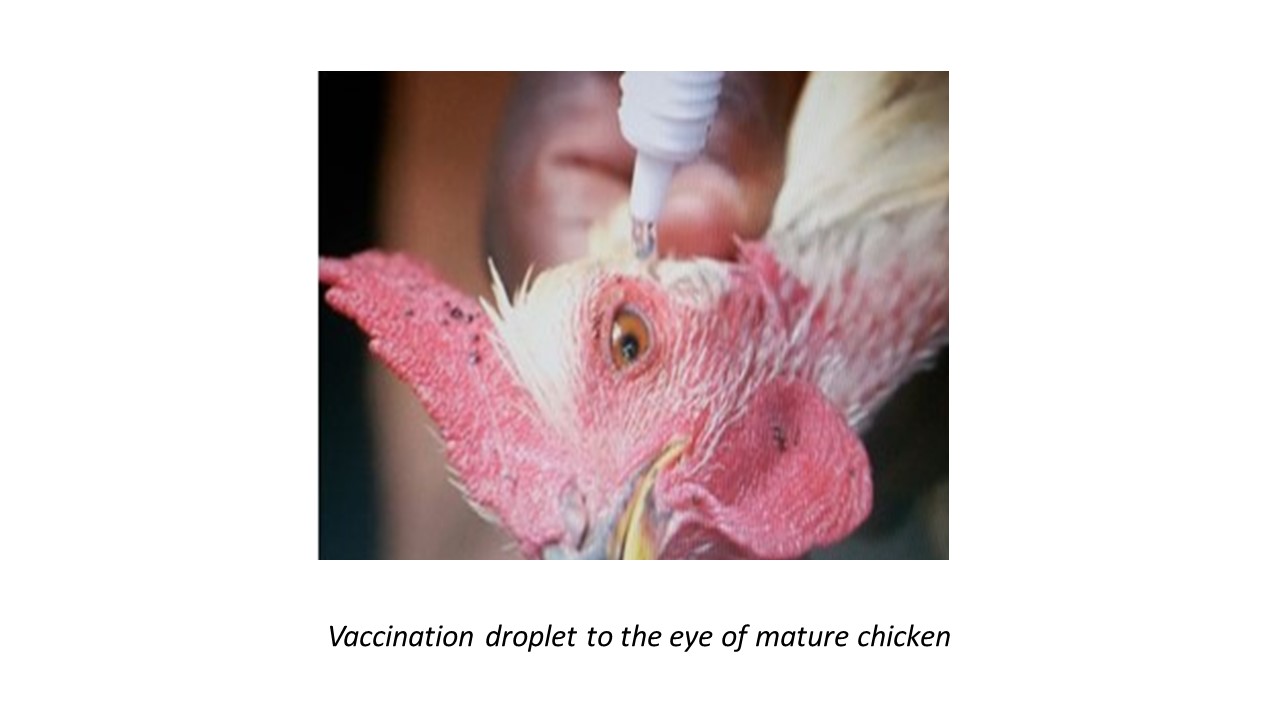Universal Vaccination against Newcastle Diseases
Summary
Poultry production in Africa is severely undermined by the Newcastle disease. This viral disease spreads by airborne droplets from coughing or sneezing among infected birds making it highly contagious. Wild birds, contaminated eggs and dirty clothing also transmit the virus. Chickens of all ages are affected but young chicks are most susceptible, with mortality levels as high as 100% percent. In older chickens, mortality is usually lower, but egg and meat production are much reduced. Fortunately, Newcastle Disease is controllable through vaccination and widely practiced by commercial poultry producers. In the past, adopting universal vaccination has proven difficult across Africa, particularly at the village level largely due to the rigorous cold chain requirement for distributing the vaccine. More recently, the development of new thermostable vaccine ND I-2 has resulted in proactive and strict control of this disease threat.
About the Solution
Universal vaccination using the thermostable ND I-2 vaccine is an ambitious but achievable goal. ND I-2 vaccine was developed using a temperature tolerant strain of the Newcastle Disease virus that results in thermostability of the antigen. Nonetheless, cold chain requirements should be respected when transporting the vaccine to remote areas by carrying it in coolers with ice packs. Other advantages of available vaccines include low-cost, availability of smaller vials containing 100-200 doses, ease of reconstitution using pre-packed sterile water, suitability for chickens of all ages and the simple means of application using plastic eye droppers. The latter characteristic minimizes the chances of contamination during application and reduces the risk of vaccine failure. An important backstopping measure is the widespread training of vaccinators.
Vaccines offer affordable services for smallholder poultry farmers in remote communities. Effective immunity against local strains of Newcastle Disease from many countries is provided by the vaccine.
Vaccines can be transported in thermos flasks on bicycles and motorbikes and quicky distributed to villages and flocks. This vaccine is easily administered by eye droppers but should be used the same day or following day after refrigerated purchase. After reconstitution (rehydration), the vaccine should be used within 2-3 hours. For full protection of layers, three doses are required at four monthly intervals. Vaccinators use insulated cooler bags, ice packs, syringes, sterile water bottles, and plastic eyedroppers to deploy the vaccines on the specified schedule. Vaccinators must wear recognizable uniforms and badges for wider recognition of their efforts.
These vaccines are produced in Africa through a technique known as “master seed egg amplification” from disease-free flocks. In Uganda, Brentec Ltd. recently produced over five million doses of ND I-2 vaccine. DBellium Nigeria Ltd. administered two million doses of ND I-2 vaccine in Jos over one year. Similar production levels occur in Kenya and Tanzania through support from the Global Alliance for Livestock Veterinary Medicines (GALVmed). Prior to vaccination, vaccinators assess the number households and chickens, and then register interested households, agreeing on the date of vaccination. Vaccines are stored at 8°C until deployment. Poultry farmers must gather their chickens in advance to assure streamlined operations.
Commercialization
Commercially available
Solution Images
Institutions




